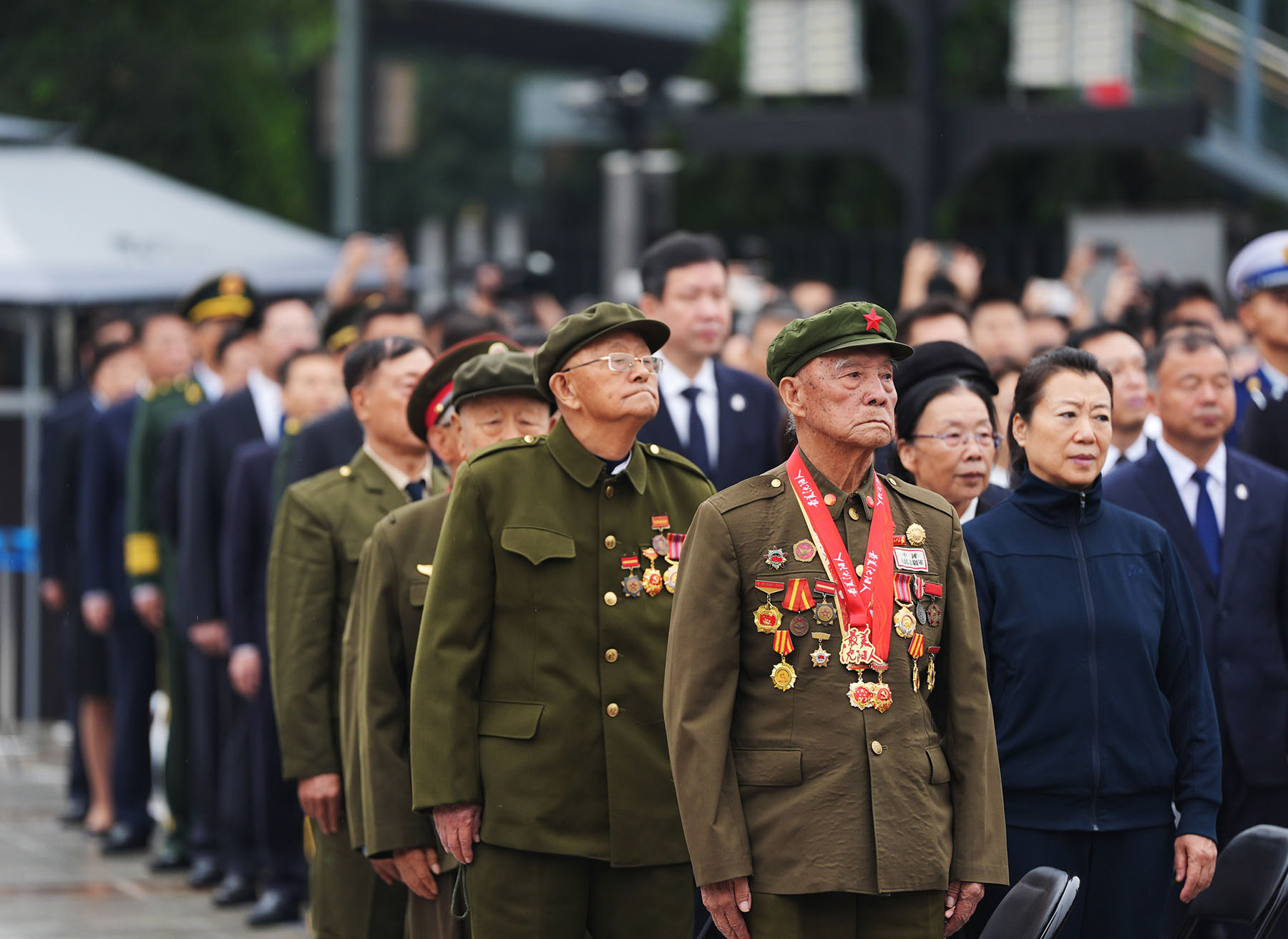1939 immigration map bears witness to Japan's seizing of land in northeastern China

A 1939 map of Japan's agricultural emigration to northeastern China, which is a national first-class cultural relic, was displayed to the public for the first time on Wednesday, the 93rd anniversary of the September 18 Incident, at the Northeast China Revolutionary Martyrs' Memorial Hall in Harbin, Heilongjiang province.
The map serves as solid evidence of Japanese aggressors seizing farmland in northeastern China and harming the Chinese people during the War of Resistance Against Japanese Aggression (1931-45), according to the hall.
READ MORE: WWII Japanese invaders’ descendants apologize for atrocities
Wednesday marked the 93rd anniversary of the September 18 Incident in 1931, in which Japanese troops began the bloody invasion of China, foreshadowing World War II and making the country the first to resist fascism.
The immigration map, published in Japan in 1939, is printed in red, black and light blue and is 76 cm by 54 cm. It was acquired by the hall in 1996 and is well preserved.
"From the map, it is clear to see the organized and large-scale immigration policy implemented by Japanese aggressors after occupying northeastern China," said Li Anyang, a guide at the hall. "The locations and data marked on the map were part of their '1 million household immigration plan in 20 years', which is also evidence of Japan's aggressive large-scale immigration."
More than 80 students from colleges and primary schools in Harbin visited the hall on Wednesday to cherish the memory of the country's revolutionary martyrs.
"The September 18 Incident is not just a period of humiliating history but also a poignant heroic epic," said Zhang Xin, a teacher from Tieling Primary School. "Our students in the new era must remember history and cherish the present.
"I hope the visit can bring them more strength, which can help them strive to learn scientific and cultural knowledge and contribute to constructing our country into a strong modern socialist nation," she added.
Also on Wednesday, the Museum of Evidence of War Crimes by the Japanese Army Unit 731 in Harbin and Seiya Matsuno, a Japanese historian, jointly released new evidence of atrocities during the war.
The 267-page document provides detailed information on 100 technicians of the germ warfare detachments of the Imperial Japanese Army from February 1944 to August 1945.
Technicians refer to specialized technical professionals who were appointed as high-ranking officials, technical officers or core researchers during the war, according to the museum.
ALSO READ: China marks 87th anniversary of resistance war against Japanese aggression
They were included in the Japanese army's official hierarchy, often serving as heads of various research departments and primarily engaging in various bacteriological experiments and medical research.
"Among them, there were 57 from Unit 731, a top-secret biological and chemical warfare research base established in Harbin in 1935," said Jin Shicheng, a researcher at the museum. "The document records detailed information, including their dates of appointment, promotion history, alma maters and achievements.
"The information well presents the overall structure and composition of Unit 731," Jin added. "It is crucial evidence for deepening the study of Japan's bacteriological warfare units and holds significant importance for fully exposing Japan's bacteriological warfare crimes."
Furthermore, the information "is also an attempt at joint Sino-Japanese disclosure of the crimes", he said. "We hope more forces can unite to jointly expose Japan's atrocities in bacteriological warfare, helping people remember history and safeguard peace."
Contact the writers at zhouhuiying@chinadaily.com.cn


